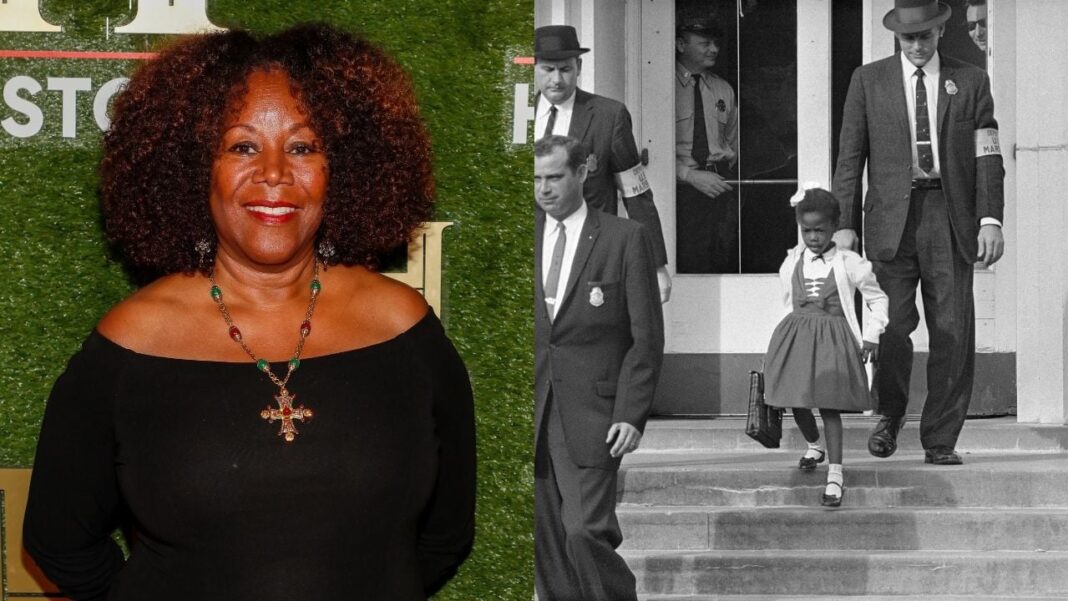Ruby Bridges: A 65-Year Legacy of Courage and Advocacy
Today marks a significant milestone in American history: 65 years since Ruby Bridges became the first Black student to integrate elementary schools in the United States. On November 14, 1960, at just six years old, Bridges bravely walked into William Frantz Elementary School in New Orleans, Louisiana, amidst a tense, hostile environment marked by an angry white mob. Accompanied by her mother and four federal marshals, her journey into the school became one of the most powerful symbols of the Civil Rights Movement.
A Moment in History
Ruby Bridges’s entry into the school was not merely a personal endeavor; it was a pivotal moment in the fight against segregation. The image of her walking to school, flanked by protective marshals, crystallized the fierce resistance to integration while also highlighting the courage of young individuals thrust into the spotlight of social change. Inside the school, Bridges faced the harsh realities of racism head-on, learning alone for months with the only teacher willing to accept her, Barbara Henry. This steadfast commitment to education, despite overwhelming odds, has inspired generations.
Early Life and Background
Born on September 8, 1954, in Tylertown, Mississippi, Ruby Bridges was the eldest of eight children. After her family relocated to New Orleans, they faced the decision to allow her to take the exam to integrate the city’s schools. Ruby, however, remained blissfully unaware of the historical gravity surrounding her choice. In later interviews, she recounted how her parents hadn’t prepared her for the chaos she would encounter. Her mother simply told her, “You’re going to a new school today, and you better behave.” This innocent perspective allowed her to navigate an adult world filled with hostility and conflict.
Activism Beyond the Classroom
Following her groundbreaking experience, Ruby Bridges continued to shape her legacy as an activist. She authored several books geared toward children, aiming to educate young minds about the importance of equality and understanding. Moreover, she founded the Ruby Bridges Foundation, which focuses on promoting diversity, tolerance, and the power of education. While advocating for civil rights, Bridges also faced personal tragedy; her eldest son was killed due to gun violence, a devastating loss that has spurred her determination to continue her work.
Contemporary Challenges
As we reflect on this anniversary, troubling parallels emerge. The same forces that once opposed Bridges’s access to education are re-manifesting today, with diversity programs being curtailed and essential conversations about race increasingly restricted. The rise of anti-DEI (Diversity, Equity, and Inclusion) initiatives and bans on Critical Race Theory in educational curriculums echo the oppressive sentiment of her early days in school.
Bridges recognizes this haunting repetition. In discussing the impact of her son’s untimely death with NPR, she articulated a deeper understanding of the ongoing struggles against systemic injustice. “It made me realize that I had a lot more work to do, that all of us, no matter what we look like, we all have a common enemy,” she stated, emphasizing the universal battle against “evil.” This clarion call to unity serves as a powerful reminder that the work for justice and equality is far from over.
Bridging Generations
Ruby Bridges’s story remains a touchstone for discussions around race, education, and equity, serving not just as a historical account but as a call to action for future generations. Her life’s journey illustrates the essential role of individuals—especially young voices—in shaping society. It prompts us to consider our own responsibilities in fostering a world where diversity is celebrated rather than resisted.
In a landscape where the fight for civil rights continues with fresh urgency, Bridges’s indomitable spirit encourages us to remain vigilant, to advocate for change, and to ensure that the lessons of the past guide our actions today.



